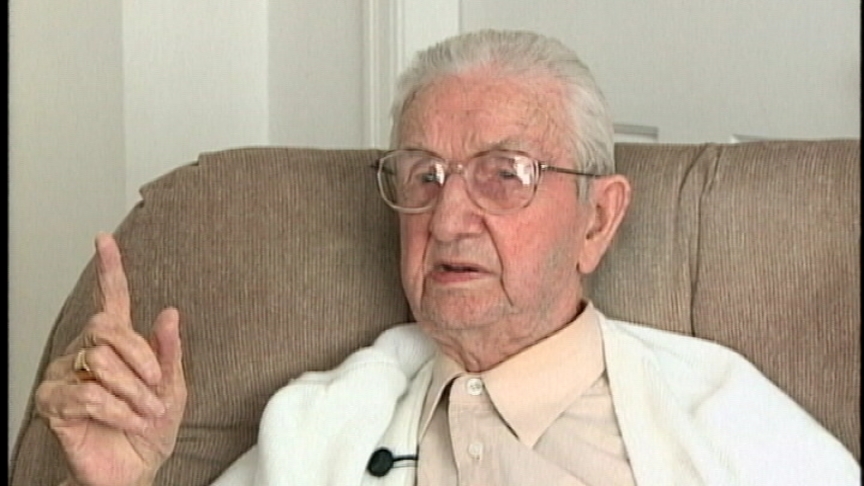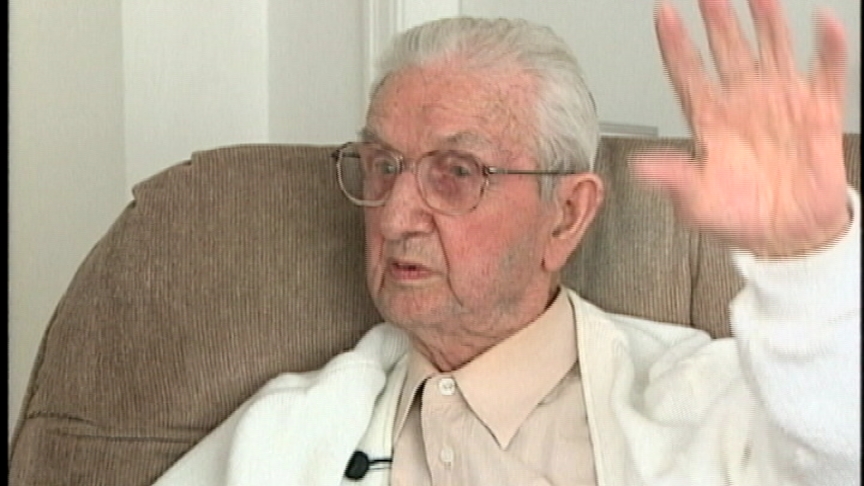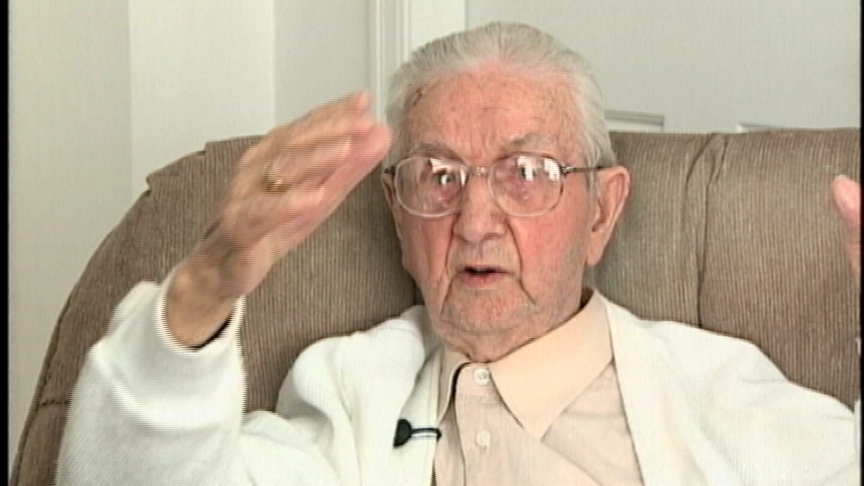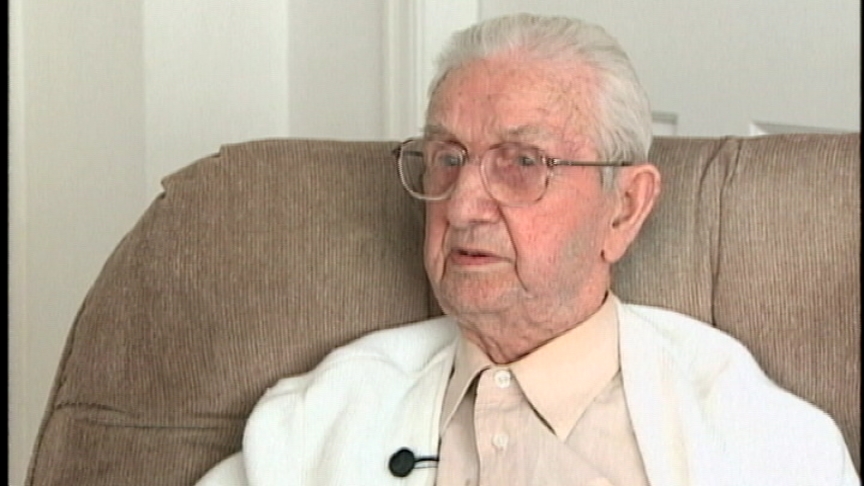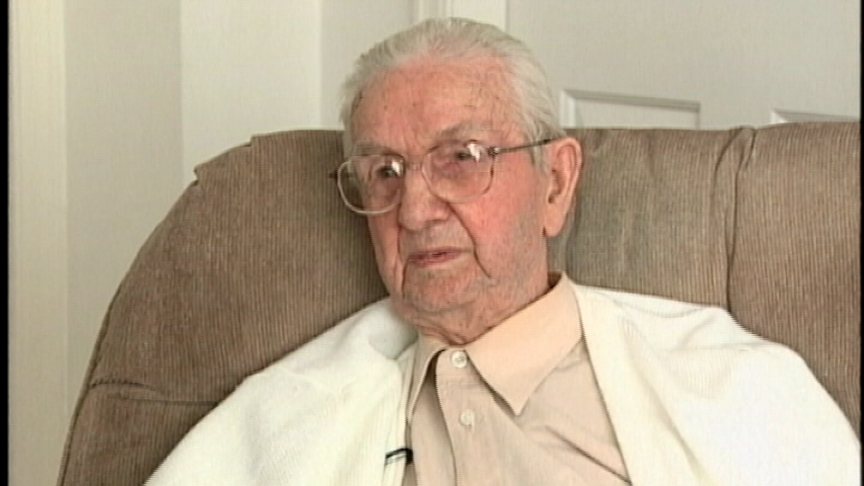And lice was part of our work. Lice was … you got rid of them
today and they were back tomorrow. We were always full of
lice. Every now and again we went in and our whole (outfit)
went through some kind of pressure and got rid of all the
lice, but they were back again in no time. Then the rats would
run all over the place. I always wondered, why were they not
killed by the gas? But they were down mostly in the trenches.
Now we spent all our time in the trenches, in the trench warfare
time, but also we were able to go out around the infantry,
provided there was not more than two or three of us at a time.
If a German plane saw us, they never fired on two people, as a
rule. Now if we saw two Germans we’d fire on them, but
they didn’t. But if they saw six of us, they put the guns on them
you see. So, we could walk around at times even in view of
their balloons, and they wouldn’t bother us. But if we
went up forward and walked around ... and they had snipers.
And you'd see signs, when you’re in the trenches, every now and
again, ‘beware sniper.’ We were always in dugouts and we
slept in dugouts. And then, you see, the guns were up above. And
sometimes you would stay around the guns, but that was only if we
were going to be called on. No, we had sleeping quarters down
below. We got used to sleeping in trenches. Every trench
connected and you had more than one entrance. You see, all the
trenches had at least a double entrance. If one entrance is hit
and damaged and you can’t get out, you can get out the other
one. If they’re both hit you’re just out of luck.
When you got into mud, it was really muddy. We had times
there, oh you’re wet, it would rain and you’d not dry for a long
time. Our health was very good. I never once, never once
reported.to a doctor for my health. I had to report when I had
to you had the automatic checks every so often. We had, once a
month there’d be a check, you see. But I never once reported
sick. Once I went to a dentist only. But I never once went on
sickness. I never had a sickness in the army.
And our food was good. It was pure, it was not, it was not
maybe what you would eat everyday here, but it was all good food.
And, of course, we had extra rations at times, and at times we
were very short, you see. But the trench warfare used to send
a lot of the stuff. They built these small railways, you know.
I suppose you heard of that. Well, I rode on those quite a
bit. We used to bring our ammunition up with those, you see.
The horses and that were not used a lot. The drivers were back
there and not doing much work. We were all up at the guns, you
see. The drivers didn’t have near as much work because these
little trolleys brought in all the stuff. We would have a line
right near our gun and we’d bring all our ammunition right up
there. We used to get, we had our rum rations sent up and when
you’re up on the front they had a rum ration every night. But we
never had it every night when we were on the sniping gun. You
see, our wagon would go up to their battery, then from the
battery, what went to the sniping gun was sent up separately on
the railway, this small railway. And the rum used to come up
that way. Well, when it came up to our place the lads would
say, “Let’s not drink any rum tonight. We’ll save it up and
we’ll drink it all in one night.” So periodically, once
every so often, they’d put it into jars and hold it and then
use it all in one night. And then we’d get (busy) and we’d
pick the targets and shoot.




